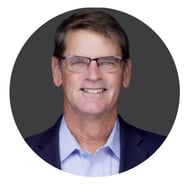 Sometimes in our professional lives we do things because we think they are a smart business move. Sometimes we act because we have no choice because the market demands it. Sometimes we take positions or actions because we are thinking about our company’s ethos and reputation in the community.
Sometimes in our professional lives we do things because we think they are a smart business move. Sometimes we act because we have no choice because the market demands it. Sometimes we take positions or actions because we are thinking about our company’s ethos and reputation in the community.
Every now and then, those things are at odds with each other. And other times, they align perfectly.
Paying attention to and acting on diversity in your business is one issue that can help you align all those facets of your business. It can help you show the world (your employees, clients, and potential customers) who you are, what you value, how the way you value people and business shows up in your work. It can also help you refine your thinking and actions to make all that public positioning real!
The New Role of Diversity in Leadership
In our world of nonprofit leadership, diversity is a part of every conversation we have with clients. Whether we are contemplating placing an interim Executive Director or conducting a search for a new CEO, we need to be able to articulate where the organization is on the task of making their workplace vibrant, diverse, welcoming, and nurturing. That may sound very “fluffy” to some, but it’s a big deal to today’s workforce. Today’s (and especially tomorrow’s) innovative and talented leaders recognize the value proposition in creating work environments that encourage expression as opposed to blindly demanding results.
Talented, valued, and motivated leaders make amazing things happen. The goals you used to consider your targets are a thing of the past for this new generation of leaders. Instead, they lead and work on their terms and with a broader understanding of the human experience as a driver for client action and reaction to what your company or organization does, and how it does it.
What started as a movement to get colleagues and managers to stop being overbearing jerks in the workplace, has evolved into a global reflection on what is important to us as individuals and as communities. Then came the realization that what is important to each of our employees is also important to our potential customers in the community who identify and react to things the same way our employees do. We used to say that our target was for our workforce to look like the community we serve. However, that is reactive as opposed to proactive. With that mindset we were playing catch up – and usually not very effectively!
Diversity as a Business Model
The smart way to approach diversity as a business model (or at least a big part of your business model) is to stop trying to please the DEI police with another workshop or token hire so you can check a box. From now on, successful businesses of ALL kinds will recognize that a diverse workforce is the key to understanding your customers and anticipating their needs.
How does a successful company define diversity? Look at the tapestry of people who make up the community where you live. Certainly, there is the easy first pass of color, race, ethnicity, gender, and age. But within each of those identifiers are factors that influence how people make decisions – things like income levels, intelligence (intellectual, social, and emotional), past trauma, generational identifiers, immigration status – the list goes on forever!
So, how do you utilize these decision influencing factors? The best way to understand your potential customers is to have people on your staff who you will listen to when they tell you about how a product or campaign will resonate with people like them. Those people obviously have other tasks to perform and leadership expectations to meet on a day-to-day basis, but smart companies also see them as market advisors who can lend valuable insight – teaching you how to expand the business or opening your eyes to where the company might be wasting its time.
Stepping into the Future
The key for leadership is to shift from the mindset of overlord to one of a student, convener, visionary, and strategist. Stop hiring people to do what you needed done last year! Hire people who could do that without thinking – ones that truly believe in what you are doing and see it as a benefit to them and the community they represent.
Now go back to the tapestry of your community from earlier. Imagine what life is like for some of those people you see outside your offices, but not inside. Ask, “How do those people make buying decisions?” and “How do they decide what types of jobs or careers to pursue?” The only real way to find out is to have someone on your team who both knows what you are trying to do as a company AND how that resonates with people like them in the community.
When you are looking at potential team members, look for lived experiences that are different or new for your team. Assuming two candidates have relatively equal credentials, go for the candidate who brings a new lived experience perspective to your team. This diversity will help everyone grow as they learn from each other. It will also help you grow the company as you learn from your team about the potential you never saw before because your own lived experience was just your own.
Do the same when promoting leaders. Be intentional about using the same lens when you have opportunities for promotion. Diverse lived experience on a management team comes naturally when there is an enterprise-wide ethos that values diverse insight and perspectives. Leaders will start to emerge in the way they recommend changes in operation, marketing, and strategy, at all levels of your company. A truly valued and empowered diverse workforce will change the way you do business and how you show up in the communities where you work.
The future is now. It’s time for the big questions:
- Are you willing to embrace the future of a diverse workforce where everyone is valued because of their diverse lived experience, not despite it?
- Do you have the courage to embrace all that new input and use it to make your team and your company more relevant to the communities where you work?
Recruiting Resources
When you need help navigating this kind of growth, lean on the companies that have been spearheading it for decades across social enterprise organizations and corporate entities.
If your nonprofit organization needs help finding a new CEO or Executive Director, reach out to us! We offer nonprofit executive recruiting services that strive to deeply understand where each client is on the spectrum of social justice and equity, and adapt our processes to support and advance the client’s goals while never compromising our own commitment to equity and diversity. We recognize the privilege that the historically white-led sourcing and recruiting industry represents and the inherent systemic bias which has historically prevented people of color and those with other diverse perspectives from participating in an equitable and inclusive process.
Our colleagues at CFO Selections are equally adept at finding financial leadership for both nonprofit and for-profit organizations. As executive financial recruiters they place senior finance and accounting leadership at organizations looking for strong financial leadership while valuing the contributions of diversity of thought and lived experiences of all candidates. Their understanding of what makes a Chief Financial Officer (CFO) or Controller successful is unmatched, and they will bring that skill and knowledge to your specific needs and cultural environment with a firm belief that organizations are stronger when diverse voices are represented.
About the Author
Dave Lenox – Managing Partner, Valtas Group
 Dave Lenox is an experienced leader with a demonstrated history of working in the non-profit, change management, organization design, and management fields. He is a skilled business development professional with a BS in Special Education from Missouri State University and a Master of Business Leadership focusing in Organization and Change Management from Capella University. Before joining Valtas Group, Dave was President and CEO of Special Olympics Washington (SOWA). His career with Special Olympics began in 1985as the Area Director in Kansas City, Missouri.
Dave Lenox is an experienced leader with a demonstrated history of working in the non-profit, change management, organization design, and management fields. He is a skilled business development professional with a BS in Special Education from Missouri State University and a Master of Business Leadership focusing in Organization and Change Management from Capella University. Before joining Valtas Group, Dave was President and CEO of Special Olympics Washington (SOWA). His career with Special Olympics began in 1985as the Area Director in Kansas City, Missouri.





